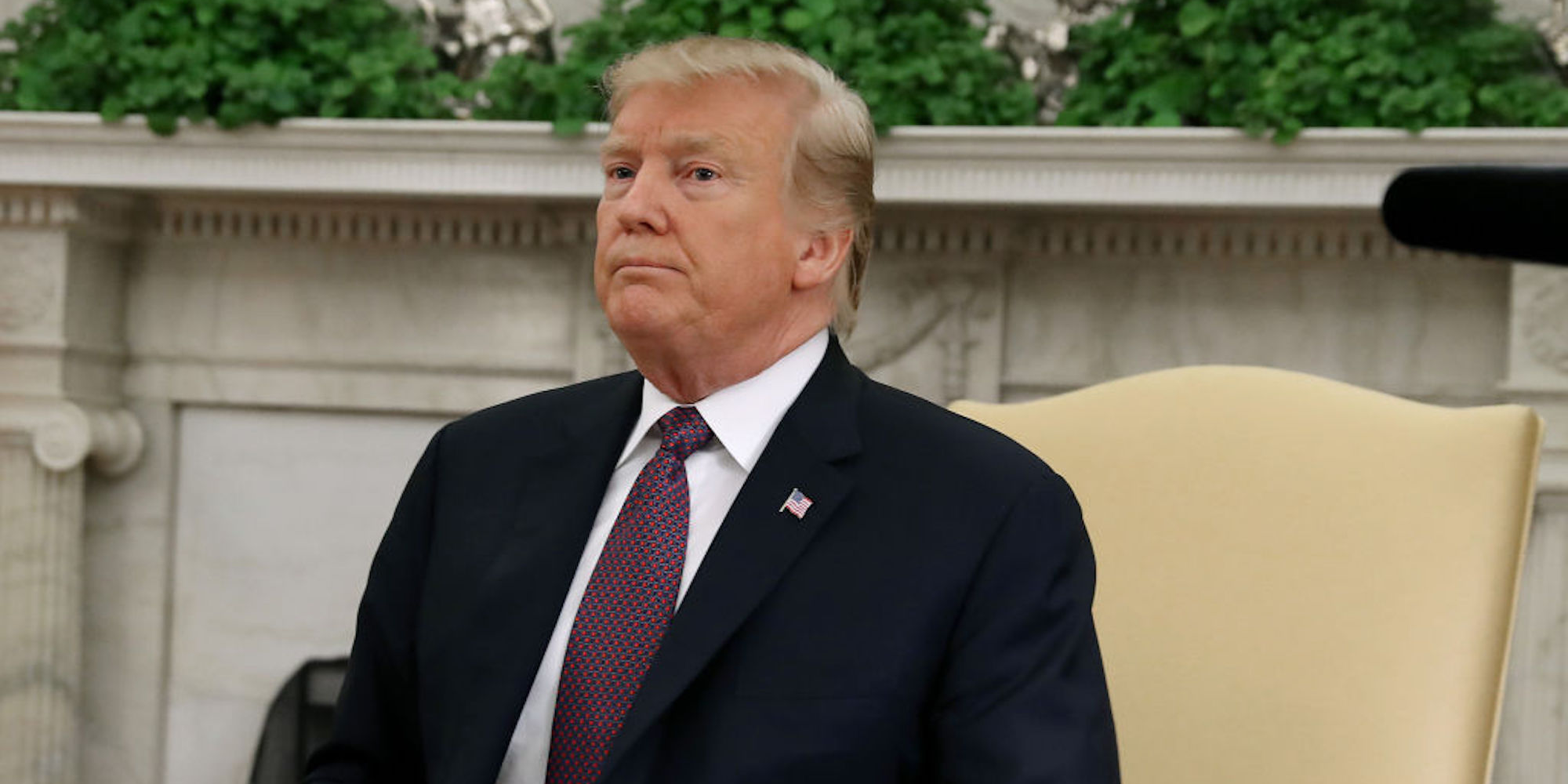- Republican senators are openly criticizing President Donald Trump’s escalating trade war with China, warning that farmers in traditionally Republican rural states will bear the brunt.
- “I’d say the farm community is right on the edge of having been as supportive as they can be before that begins to turn,” Sen. Roy Blunt of Missouri told Bloomberg.
- The president has pledged federal assistance for farmers affected by the trade war.
- China imposed tariffs on US agricultural goods in retaliation for Trump’s first round of tariffs last year.
- Visit Business Insider’s homepage for more stories.
Republican senators are breaking ranks to criticize President Donald Trump’s trade war with China, with no end in sight for tariffs levied by Beijing against US produce.
Sen. Chuck Grassley of Iowa has been among the most vocal GOP critics of the president’s trade policies, which saw the US raise tariffs on $200 billion worth of Chinese goods on Friday.
On Tuesday, Grassley took the rare step of openly accusing the president of not listening to concerns he had expressed about the latest escalation of the confrontation between Beijing and Washington.
“I’m not sure if you talk to him face to face, he hears everything you say,” said the senator, who is chairman of the Senate Finance Committee, as quoted by The Washington Post on Tuesday.
Grassley also said the trade war would most likely have an influence at the polls.

"It's going to have some impact on elections, of course," Grassley said, as quoted by The New York Times. "So far, I haven't seen farmers abandoning Trump, but it's going to have some impact."
Other Republican lawmakers have also warned the president that patience among traditionally Republican-supporting farmers is wearing thin, as senators work with the administration to craft an aid package to farmers.
"I'd say the farm community is right on the edge of having been as supportive as they can be before that begins to turn," Sen. Roy Blunt of Missouri told Bloomberg. "But hopefully the president will come to some conclusion here soon."
"There's a lot of concern," Sen. John Cornyn of Texas told the Associated Press.
"If this is what it takes to get a good deal, I think people will hang in there, but at some point we've got to get it resolved," Cornyn said. "If this goes on for a long time, everybody realizes it's playing with a live hand grenade."
In remarks to The Post, Cornyn described Trump's planned proposals to ease the plight of farmers, for example by cash assistance, as "inadequate."
According to reports, few farmers reliant on exports to China expected Trump's trade war with China to last as long as it has. Before negotiations abruptly collapsed last week, Trump had signaled repeatedly that a trade deal between the world's two biggest economies was close.
"We kept hearing that talks were going well, it sure looked like this was all going to be taken care of soon," John Heisdorffer, an Iowa farmer who is chairman of the American Soybean Association, told CNN on Tuesday. "There's a lot of uncertainty and a lot of emotions right now for farmers."
Beijing responded last April to Trump's first round of tariffs with tariffs of its own targeting American agricultural produce. China is the second-largest export market for US farmers for crops including soybeans and wheat.
The retaliatory tariffs were widely interpreted as designed to hurt a key bloc of the president's support ahead of the 2018 midterm elections.
More than 75 percent of voters in the Farm Belt voted for Trump in 2016, and are a key element of the president's support. The senators who expressed reservations about the president's trade policies each represent states in the top 20 agriculture producing states.
"If ... he doesn't resolve this by the time we get deep into the presidential campaign and we have pain in the soybean parts of the country ... it's going to be a real problem for him," said one former Trump administration official, speaking on condition of anonymity, told Reuters on Monday.
To mitigate the worst effects of the tariffs on farmers, Trump last year authorized $12 billion in government assistance, and he told reporters at the White House on Tuesday that money from the US's latest tariff hikes would be used to fund a new round of support.
"Out of the billions of dollars that we're taking in, a small portion of that will be going to our farmers," Trump said.
"We're going to take the highest year - the biggest purchase that China has ever made with our farmers, which is about $15 billion - and do something reciprocal to our farmers."
Senators have met twice with Vice President Mike Pence in the past week as the White House seeks to ease their concerns, and they are working with the administration to hammer out the details of the relief package.
Other top Republicans have expressed their backing for Trump's trade war with China, including Florida Senator Marco Rubio who on Twitter Monday wrote "surrendering to China will cause long term & permanent economic devastation." Politico reported Tuesday that there was little willingness among Republicans to confront the White House about trade policy among those with concerns about the president's policies.
Though support for the president in rural Republican heartlands has held, Democrats are already seeking to take advantage of mounting unease over his trade policies.
"I think there is an opportunity. We have actually done some focus groups in farm country," Celinda Lake, a Democratic pollster, told The Hill.
"Farmers were very loyal to Trump and wanted to give him a chance and thought everybody needed to do their fair share, but I think it's getting different now."

